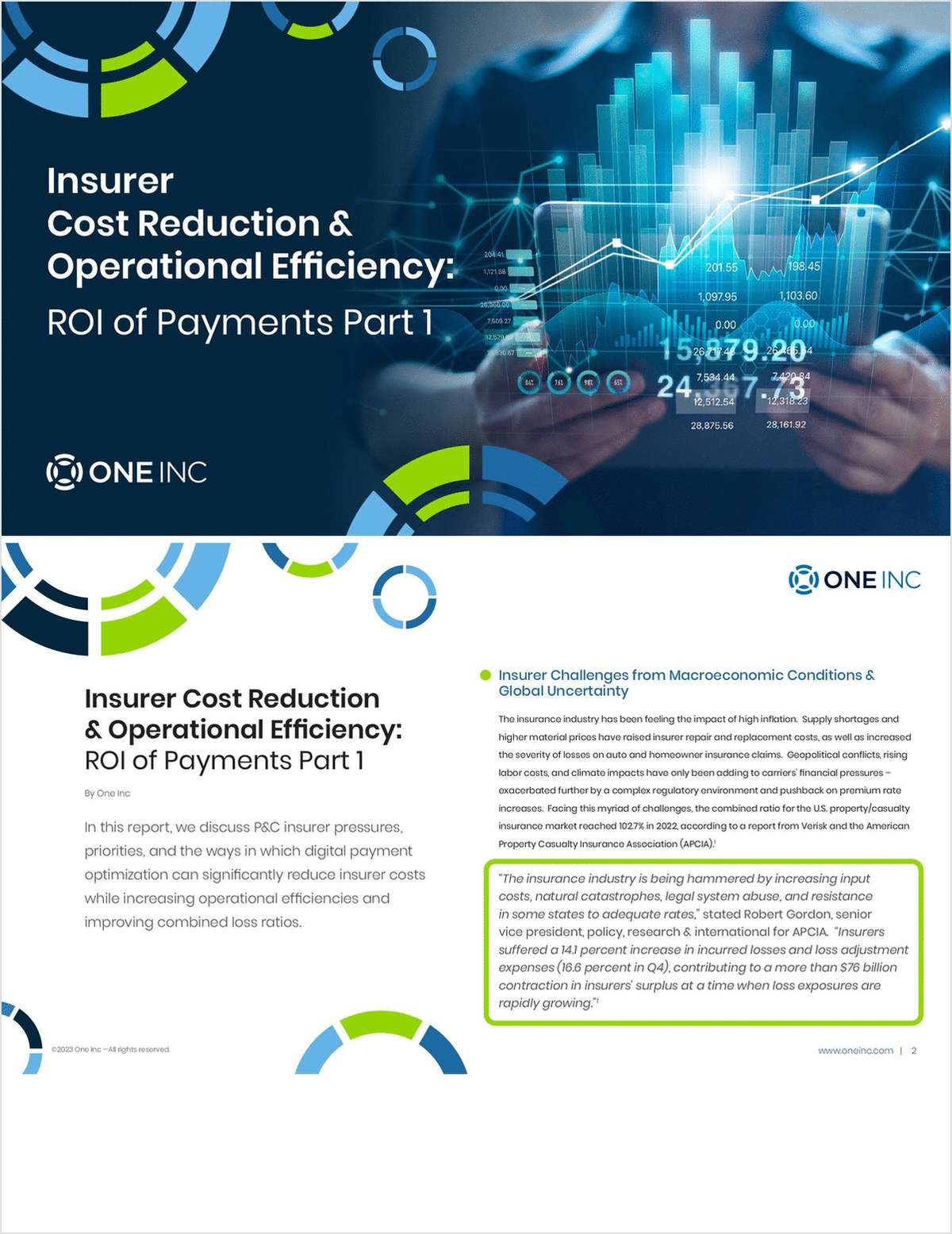A state appeals court in Louisiana has issued a ruling that under state law there are tough proof requirements for an insurer seeking to use flood exclusion language in a homeowner's policy to avoid paying for a total loss.
The Third Circuit Court of Appeals in a 3-2 ruling, while ostensibly finding in favor of the state's Citizens Insurance Company, sent the case back to the lower court for a trial, where it said the insurer will have to convince a jury that flooding, an excluded peril, was the total cause of loss.
Without making that case, the courts said Louisiana's valued policy law comes into play. Under that statute, an insurer is normally required, when there is a complete loss, to pay the full face value of the policy. The law also precludes a carrier from accepting premiums for one face value and then claiming the loss is a lesser amount.
In the case at issue, Landry vs. Citizens, the Fifteenth Judicial District Court in Lake Charles, La. Vermillion Parish issued a summary judgment against Citizens in favor of plaintiffs Mark and Barbara Landry, which the appeals court overturned.
Citizens had denied payment of the claim, contending the loss was caused by flooding, a non-covered peril. The Landrys sued Citizens saying that because their home in Erath, La., suffered wind damage from Hurricane Katrina, the valued policy law effectively covered their loss.
The lower court in its summary judgment last December found that Citizens should pay the policy limits.
While rendering the case back to the lower court for trial, the appeals court placed the onus on the carrier to prove the loss was the result of a non-covered peril, such as flood, to avoid indemnifying the risk.
"It is not sufficient to show that flood water contributed in part, as Citizens argues, to a building's destruction or constructive loss; the insurer must prove that the excluded peril caused the total loss to avoid fully indemnifying the insureds," Judge Sylvia R. Cooks noted, writing for the majority.
The court also said that when there is a mixture of perils resulting in the loss of a home, it is up to a jury to decide the cause of the total loss.
"Each case must turn on its own facts, which are left for the trier, judge or jury, to resolve," Judge Cooks said.
"The Landry decision represents a Louisiana Appellate Court's faithful adherence to insurance law principles that have long protected Louisiana homeowners," said a statement from John N. Ellison, an attorney with Anderson Kill & Olick, one of several counsel involved in the case for the Landrys. "In the wake of other recent negative rulings in the federal system, it is critical for policyholders to continue to seek relief in the Louisiana court system..."
The most recent federal ruling referenced by Mr. Ellison is Chauvin vs. State Farm Fire & Casualty decided in August. The U.S. 5th Circuit Court of Appeals ruled in that case that Louisiana's valued property law was designed to ensure carriers paid the face value of an insurance policy when there is a total loss and not to force insurers to pay for an uncovered peril as plaintiff Daryl Chauvin contended.
The court reasoned in that case that the law's intent is to make sure carriers value the property correctly under the policy and not collect more premium than they should. It also was designed to prevent the insured from overinsuring their property and collecting more from insurers than the property was worth.
John Wortman, executive director for Louisiana Citizens, did not feel the latest decision by the state court was necessarily a negative one for the insurer. He believed it reaffirmed past decisions that insurers should be responsible for paying losses that were a covered peril.
"We think this is obviously a better decision that moves in the right direction for us," said Mr. Wortman.
However, he cautioned that he still needed to meet with attorneys to understand the full meaning of the court's decision.
If insurers thought they could take comfort from the court's dissenters, however, they would be mistaken. Both dissenting judges, James T. Genovese and John D. Saunders, felt the lower court's ruling was correct and the summary judgment should stand.
Want to continue reading?
Become a Free PropertyCasualty360 Digital Reader
Your access to unlimited PropertyCasualty360 content isn’t changing.
Once you are an ALM digital member, you’ll receive:
- Breaking insurance news and analysis, on-site and via our newsletters and custom alerts
- Weekly Insurance Speak podcast featuring exclusive interviews with industry leaders
- Educational webcasts, white papers, and ebooks from industry thought leaders
- Critical converage of the employee benefits and financial advisory markets on our other ALM sites, BenefitsPRO and ThinkAdvisor
Already have an account? Sign In Now
© 2024 ALM Global, LLC, All Rights Reserved. Request academic re-use from www.copyright.com. All other uses, submit a request to [email protected]. For more information visit Asset & Logo Licensing.








